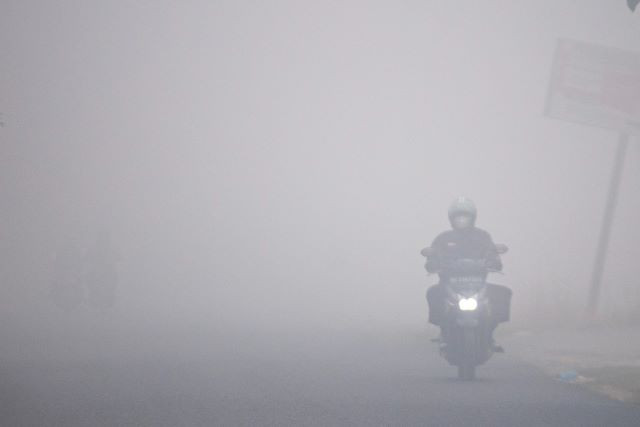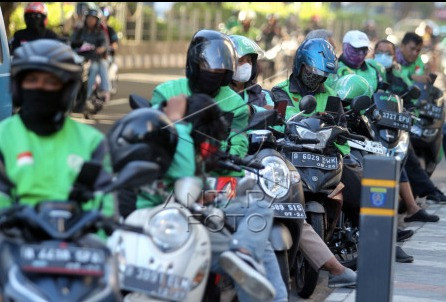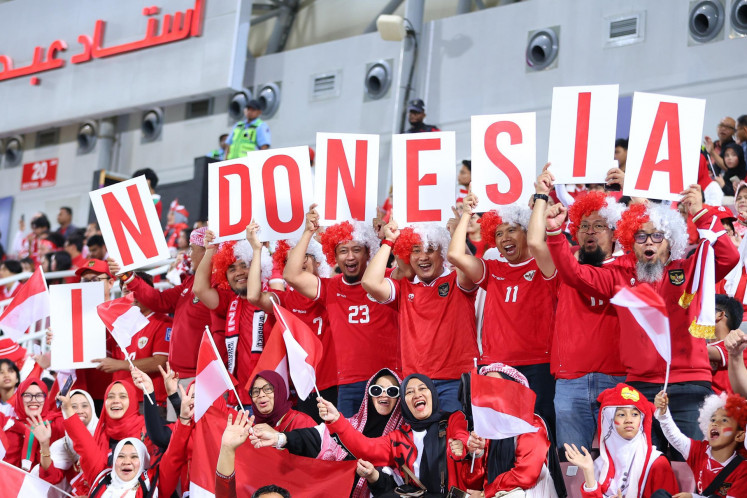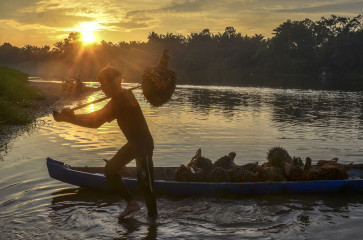Navigating EU green wave: Indonesian exporters brace for EUDR impact
Quickly adapting to the EUDR requirements and embracing sustainable practices not only opens up greater access to the EU market but also presents an opportunity for Indonesian companies to position themselves as global leaders in sustainable commodity production
Change Size
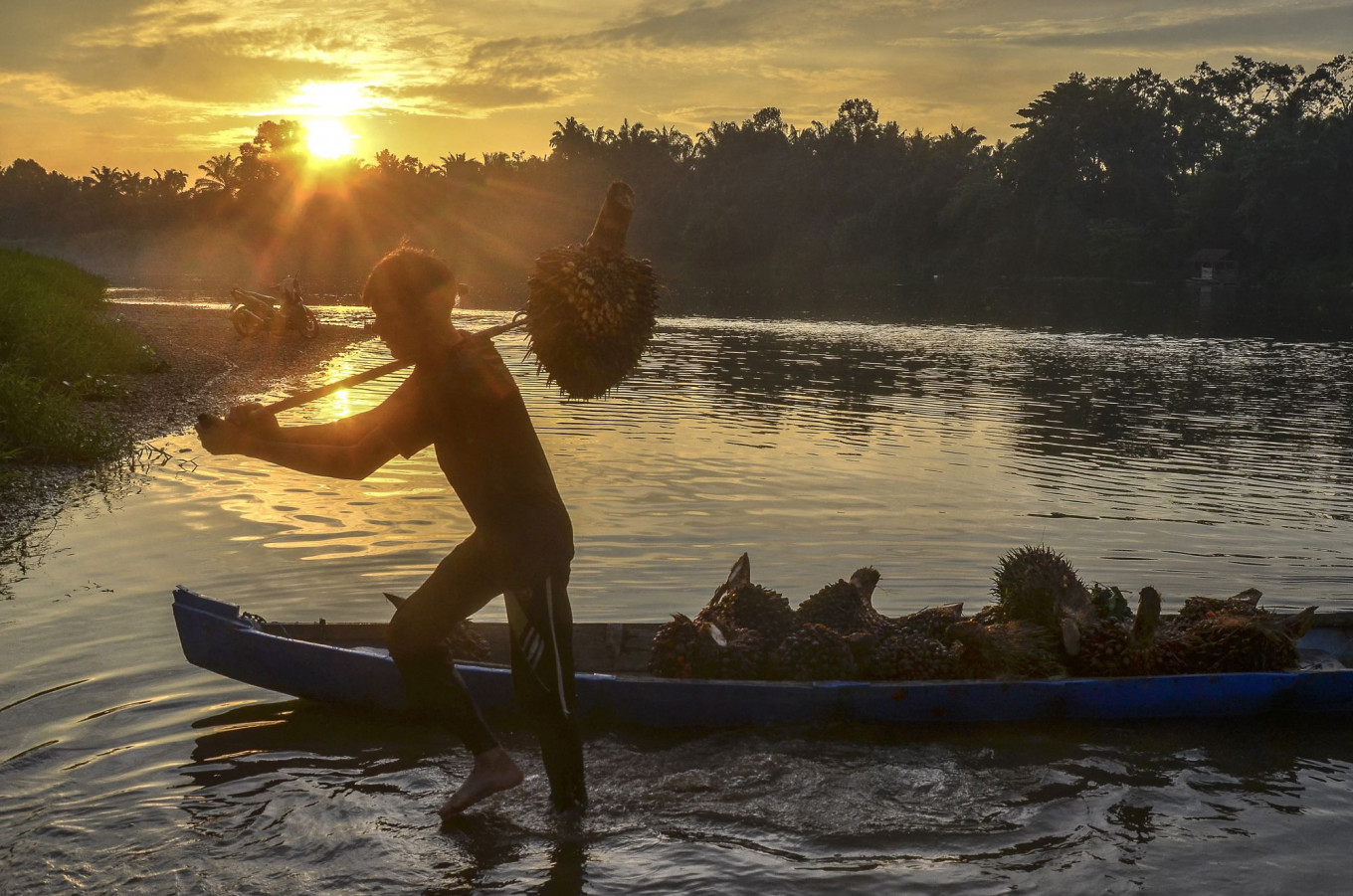 A worker loads oil palm fruits on a boat to be transported along the Kampar River on Aug. 13, 2022, to processing plants in Kampar, Riau. (AFP/Wahyudi)
A worker loads oil palm fruits on a boat to be transported along the Kampar River on Aug. 13, 2022, to processing plants in Kampar, Riau. (AFP/Wahyudi)
A
s the European Union Deforestation Regulation (EUDR) enforcement deadline draws near (Dec. 30, 2024), Indonesian companies exporting listed commodities such as palm oil, coffee, cattle, cocoa, rubber, soya and wood to the European Union market are on high alert.
The EUDR, hailed as a milestone in environmental legislation and a key component in implementing the EU Green Deal, will prohibit listed commodities from entering the EU market unless they are deforestation-free, produced in accordance with the relevant legislation of the country of production, and covered by a due diligence statement indicating no more than a negligible risk of non-compliance by Dec. 30 of this year.
While this European regulation represents a significant step forward in combating deforestation, it poses considerable challenges not only for European companies but also for non-EU companies. Indonesia, one of the EU’s largest exporters of palm oil and at least one of the EU’s top 10 exporters of coffee stands at the forefront among countries affected by the EUDR. Compliance requires rigorous documentation of supply chains, traceability and compliance with local laws and regulations. For companies accustomed to operating with minimal oversight, these additional requirements present a daunting challenge.
One of the primary hurdles for Indonesian exporters lies in due diligence and the abundance of data points and legal documents companies need to collect. Under the EUDR, exporting companies must provide a due diligence statement that demonstrates that their products are produced or sourced from deforestation-free areas with a cut-off date of Dec. 31, 2020.
This entails providing geolocations for every plot of land from which commodities are sourced. For instance, a palm oil company exporting a supply from 500 mills in one shipment, with each mill receiving fruit bunches from 140 plantations, would need to document 70,000 plots of land. Assuming each plot requires eight documents as proof of legality, this translates to 560,000 documents per shipment.
Furthermore, the EU-provided system for uploading and processing due diligence remains notably underdeveloped since its last trial in early 2024. Throughout the pilot test, numerous companies encountered system crashes when trying to upload polygons spanning 5 hectares, signaling significant technical limitations. Failure to enhance the system before the EUDR deadline could lead to a backlog in due diligence processes across the EU, potentially causing chaos and inefficiencies in compliance procedures. Urgent improvements are imperative to prevent such disruptions and ensure the smooth operation of due diligence protocols.
Additionally, the EUDR also triggers supply chain challenges, particularly for medium-sized enterprises (SMEs) and smallholders due to the lack of infrastructure and resources to ensure compliance with the traceability requirements. Less than 1 percent of smallholders in the palm oil sector can demonstrate geolocations and proof of land legality. Many SMEs also operate in remote regions with limited access to technology and understanding of the complex EU regulations. Implementing traceability systems and monitoring mechanisms to track the origin of products throughout the supply chain requires significant investment in technology and capacity building, imposing substantial costs.





